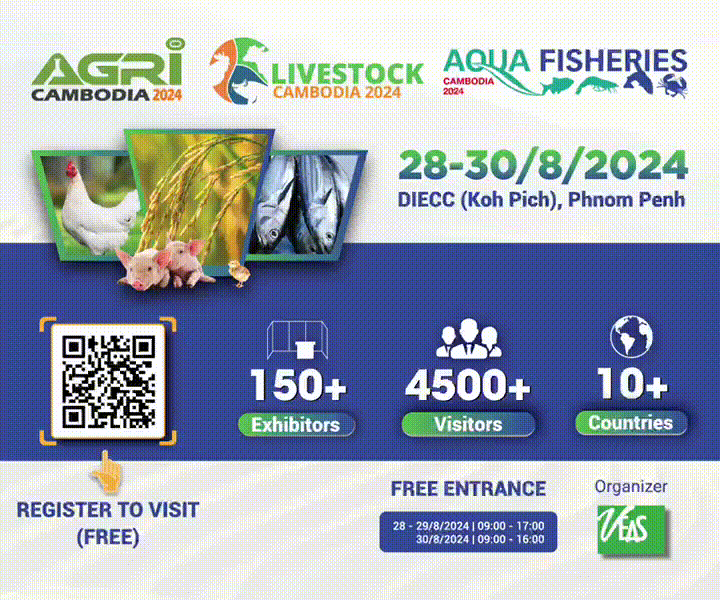
WCS said on April 5 that with financial support from the US Forest Service, it has delivered two training sessions on smallholder aquaculture to 39 farmers from Bak Angruth and Preah Angkeo villages in Dang Peng commune. WCS CAMBODIA
The Wildlife Conservation Society (WCS) Cambodia is continuing to train the residents of Sre Ambel district in Koh Kong province in fish raising, in order to provide them with alternatives to the fishing of royal turtles and Siamese crocodile in conservation zones.
WCS said on April 5 that with financial support from the US Forest Service, it has delivered two training sessions on smallholder aquaculture to 39 farmers from Bak Angruth and Preah Angkeo villages in Dang Peng commune.
The workshops were conducted as part of the “Saving Royal Turtles through Community Fisheries Development and Aquaculture Development in the Sre Ambel River System” project.
The training aimed to equip the farmers with alternative family-scale aquaculture methods, while reducing fishing pressure on wild fish and protecting threatened species like the royal turtle (Batagur affinis) and Siamese crocodile (Crocodylus siamensis).
Som Sitha, landscape project manager at WCS Cambodia, said the organisation has been conserving fisheries resources for years, especially the endangered turtle and crocodile populations.
“We are mindful of improving the livelihood of local people, so they can generate additional income to that from fishing along the river, and catching endangered species. We want them to join us in conserving these important species,” he added.
He said the training sessions had been running for years in the WCS’ target areas, and those who underwent the training had changed their attitudes and ceased fishing in conservation zones.
“Many of them have turned their attention to conservation, with some notable successes. We are continuing to run the workshops, in the hope that more people will join us in our conservation work.
“We want them to learn how to raise fish so they can generate alternative incomes. This is a big part of our conservation work,” he said.
Sitha explained that there are many other threats to the habitat of the royal turtle and Siamese crocodile.
“The logging of flooded forests, canal forest encroachment and sand pumping all have a detrimental effect on their habitat.
“Sand dredging destroys the beaches and eliminates an important part of the ecosystem and also affects many species of fish,” he said.
He added that legal and illegal fishing also affected rare species, which was why WCS knew it was important to offer people an alternative.
He said he believed that most of the local people had gained a clear understanding of the importance of protecting these species, so they had reduced their fishing activities. If they caught a rare species, they returned them to the WCS.
“We want more support for this conservation work. If there was direct funding from state institutions into this conservation, it would be a great help to us. For example, the state budget could be used to fund patrols of our conservation areas,” he said.
“During the 2022 nesting season, royal turtles in a captive-breeding group at the Koh Kong Reptile Conservation Centre laid 81 eggs in nine clutches, 30 of them hatched. This compares favourably with the year prior, when only one of 71 eggs in five clutches successfully hatched,” said WCS.












